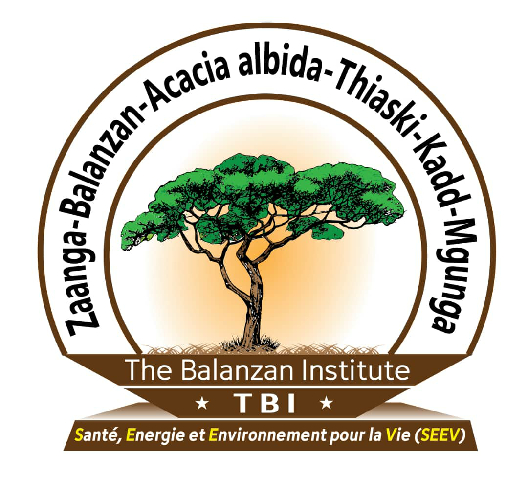Interventions along the "Pull" axes

Institutional et organizational framework of HCSC
To help make this framework more responsive/appropriate within national health systems in order to (i) facilitate the management of HCSC and (ii) enhance its capacity to support individual health programs and the health system as a whole, TBI will provide services to :
a) Support the development of clearly defined / harmonized / optimized standards for the implementation of equipment and HR:
- Strengthen collaboration between program structures and those responsible for the supply and distribution of health products to better match supply and demand and avoid shortages, overstocking and expiry.
- Develop synergy/harmonization/integration in planning, investment, implementation of health programs.
b) Adapting support to the effort to digitize HCSC management in the countries:
- Accelerate the computerization of logistics management in countries still using paper-based management tools by setting up appropriate IT tools and supporting their scaling up.
- Integrate and optimize the use of MISLs in countries in “IT transition” in order to overcome the current situation of multiple MISLs and move towards “Visibility and Analytical Networks” (VANs).
c) Generate evidence on logistics performance to inform and sensitize decision makers and managers in ministries and health programs:
- Conduct system performance assessments (Effective Vaccine Management – EVM, National Supply Chain Assessment – NSCA) and propose system improvement plans.
- Conduct studies and research to quantify the contributions of efficient logistics in terms of reduced disease incidence, reduced equipment and infrastructure capacity, and reduced operational inventory and working capital.
- Conducting technical assistance missions for managers and advising decision-makers in order to ensure that investments in logistics are sustainable.
- Promote to Ministries of Health the establishment of integrated and efficient Logistics Management Units (LMU) in functional and non-hierarchical relationship with health programs.
Human resources and training
In order to help the Ministries of Health and their public health programs, including the EPI, to have sufficient human resources and training in quantity and quality, TBI will support them in generating evidence on the contributions of logistics to program performance, particularly in terms of:
- Enhanced service quality through improved product availability
- Increased service usage and coverage due to improved service quality
- Reduced incidence of disease as a result of increased coverage
- Reduced capital investment due to reduced equipment and infrastructure capacity, and reduced number and capacity of vehicles due to increased efficiency of HCSC and optimization of distribution channels.
- Decrease in working capital requirements as a result of the reduction of safety stocks and the flow of products in circulation induced by improved inventory management
This evidence, once proven, will lead the senior managers of the MoH to change their point of view on logistics, which will cease to be perceived solely as an expense item, but will appear as a factor in generating public health and financial benefits; they will therefore be more inclined to perceive the management of the HCSC as a priority problem.
This recognition will facilitate (a) a better repositioning of health logistics in the organizational charts of health systems and programs and (b) the inclusion of the function of HCSC managers (or health logisticians) in the nomenclature of functions of MOHs. c) facilitate the creation of a career path that will make the health logistics function sustainable.
In addition, TBI will provide human capacity building services in the context of the :
- In-service training and retraining in order to (i) make up for the delays of national logisticians on current developments in health logistics, particularly in the areas of data, equipment and waste management, (ii) adapt the logistical offer during mass immunization campaigns with non-EPI vaccines (e.g., in the case of Ebola and COVID), and (iii) support the upgrading of national managers in mastering the computerized management tools of HCSC
- Initial training, in particular by helping to extend to health logistics the current academic offer of training in logistics essentially focused on “Transit” and “Transport and Logistics”.
- In collaboration with universities, invest in research and adapt curricula to local demand and context.
- Knowledge management, including the dissemination and sharing of methodologies, guides and good practices from the operational level to the national level and vice versa, and from the national level to the global level and vice versa.
This TBI support will enable national logisticians to maintain modern standards in the management of HCSC and thus enable health systems and programs to eliminate the need to fill logistician positions with unqualified staff.
Eventually, TBI also wants to present itself as a mentoring center/platform to coordinate and facilitate exchanges on CAPS in order to respond in real time to the need for updating/upgrading the knowledge of HCSC HR in the countries. Face-to-face training sessions (F2F) will be organized as well as distance learning sessions based on the tools/technologies and distance working experiences acquired in the COVID context.
Equipment et Infrastructure
In order to support health systems and public health programs in acquiring appropriate and well-managed equipment and infrastructure, TBI will provide a service offering based on the following two points:
a) The human capacity building mentioned above in section 3.2
b) Taking into account the positive impacts that good logistics management can have on the environment (“green logistics”), thanks to the reduction of greenhouse gas emissions by the HCSC, notably by:
- Greater use of renewable energy to power equipment and infrastructure and
- Reconfiguration of the system by optimizing distribution channels and storage levels.
Through this, TBI will empower health systems and programs to address current shortcomings in (i) the selection, sizing, installation, operation, and maintenance of equipment and infrastructure, (ii) temperature mapping during the installation and acceptance of cold rooms, and (iii) waste management and disposal, including the disposal of equipment to reduce its negative environmental impact.
TBI will also position itself, through its better knowledge of the reality on the ground, as a contributor to the advocacy for a better consideration of the requirements of the real context of use in the prequalification of health products/equipment as well as in the development of implementation strategies and processes.
In addition, TBI will contribute to the Sustainable Development Goals (SDGs) in a vision of innovation that would build a win-win relationship between the community and health programs (i.e. EPI).
Example of a win-win relationship between communities and health programs
For example, the promotion of local production of HCSC equipment (safety boxes, “bitatoré” thermal boxes), can be built on a triple win – win commitment:
- The EPI commits to the community to acquire local production of thermos baskets (to overcome the lack of equipment at the HCSC especially at the point of service, at a relatively lower cost)
- The community commits to produce the thermos baskets (sustainable business opportunity for the community and especially for the promotion of gender and the empowerment of women who are involved in the production of these thermos baskets)
- Community leaders make a commitment to the EPI to ensure that all children in the community are fully immunized (an opportunity for the EPI to increase immunization coverage)
Such an innovative approach creates/improves the relationship of trust between communities and health programs as they feel involved. In addition, since the thermos baskets are biodegradable, they would be another alternative to plastic in terms of waste management of EPI products and from an environmental protection perspective..

